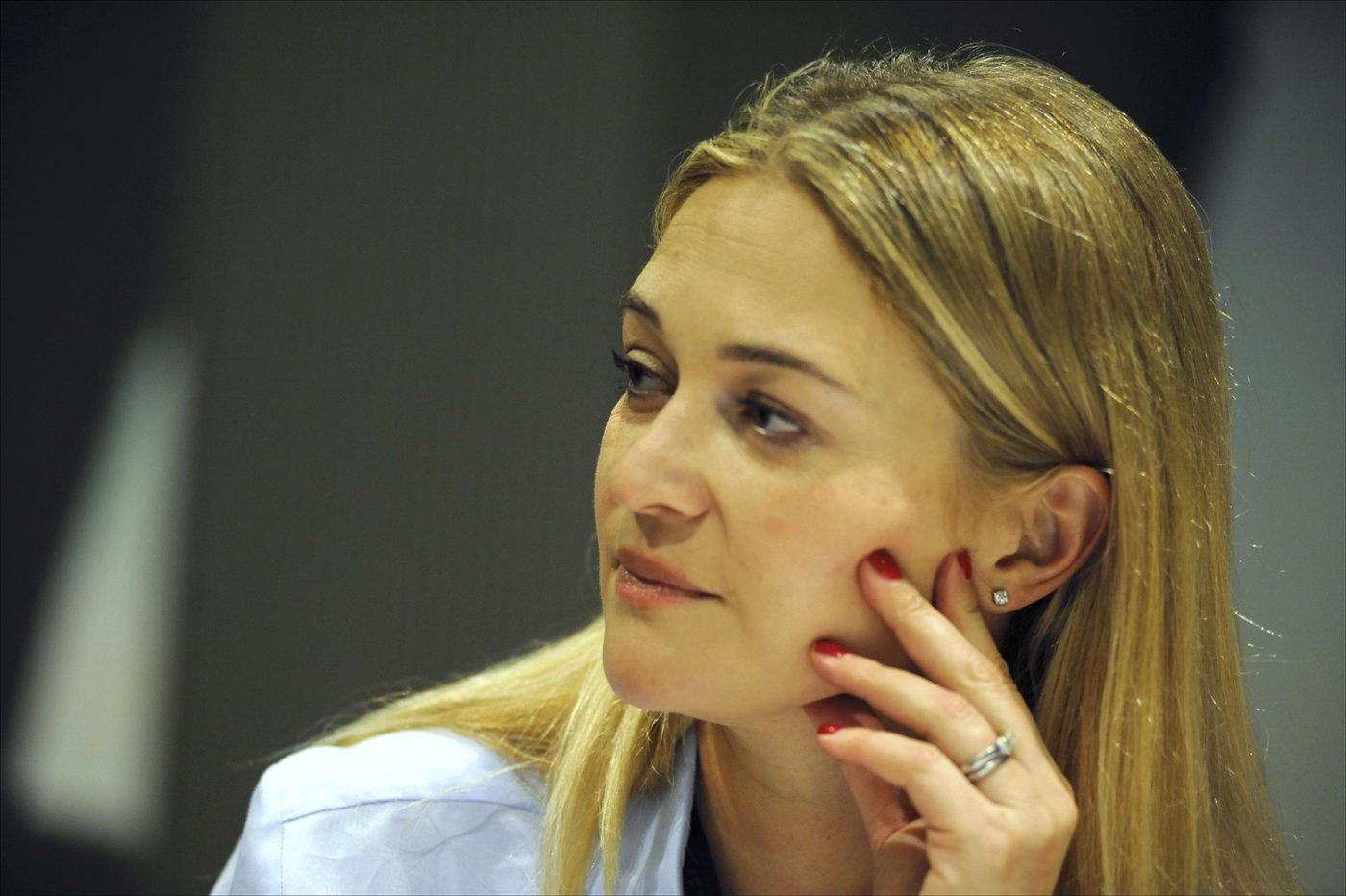Project Hercules Enlists Industry’s Help to Make Duchenne Therapies Affordable
Written by |

Emily Crossley is co-founder of Duchenne UK. (Photo by Larry Luxner)
Emily Crossley was a well-known TV correspondent for Britain’s Channel 4, and a presenter for CNN International’s World Business Today program. But her own world was turned upside-down the day she learned her son, Eli, had Duchenne muscular dystrophy (DMD).
“The initial diagnosis was so devastating. There’s no escape. It’s absolutely relentless,” she said. “When my son was diagnosed, I was completely floored. I became a full-time advocate, but I didn’t want to be. I couldn’t even bring myself to Google the word ‘Duchenne.’ Little by little, I picked myself up.”
In 2012, Crossley and co-founder Alex Johnson established the Duchenne Children’s Trust, which later became Duchenne UK. The London-based nonprofit is financed by 20 or so “family funds” and is run by Crossley, Johnson and her director of research, David Bull, MD, formerly of GlaxoSmithKline (GSK).
Yet, all the research in the world is useless if regulatory agencies don’t approve therapies in time for them to benefit the patients who desperately need them. Equally important is getting governments and health services to pay for these generally expensive medicines — especially in the case of Duchenne, for which early treatment is crucial.
“The patients’ voices weren’t being heard, and their burdens weren’t being recognized,” said Fleur Chandler, a member of Duchenne UK’s Patient Advisory Board. Like Crossley, she also is the mother of a boy with the disease. “I was working at GSK, and at that time we had a drug for Duchenne that unfortunately didn’t meet its endpoints. I asked if I could take that model and give it to other companies because it was such a shame sitting there and not being used.”
Join our MD forums: an online community especially for patients with Muscular Atrophy.
That led to the birth of Project Hercules, a collaboration whose goal is quite simple: to allow drug makers, charities, academics, patient organizations and experts to work together to build the evidence base for DMD required by Health Technology Assessment (HTA) agencies such as Britain’s National Institute of Health and Care Excellence (NICE).
“This has never been done before,” said Crossley, who spoke at the recent 2018 World Orphan Drug Congress in Barcelona, Spain. “I think the benefits are very clear. This is a really challenging environment right now. Health budgets are being pressed on every side. In the world of Duchenne, we’re seeing some very exciting new treatments, but it’s going to be very challenging to get them through HTA — and you need to raise the HTA issue right from the beginning.”
Seven companies now participate in Project Hercules: Pfizer, PTC Therapeutics, Roche, Sarepta Therapeutics, Solid Biosciences, Summit Therapeutics and Wave Life Sciences.
“Project Hercules gives us the opportunity to develop a much more robust evidence base for DMD,” Chandler said in a press release. “Some companies can dedicate considerable time and resources to developing the economic modeling and quality of life measures for their submissions. However, this is not the case for all, which runs the risk of uncertainty in decision-making and, ultimately, patients losing out.”
Proponents say the partnership is cost-effective, allows easier access to data and pro bono support, and increases collaboration with patients and the organizations that represent them.
Annika Bergman is associate director for EU pricing and market access at Sarepta, which manufactures the exon-skipping drug Exondys 51 (eteplirsen).
“Sarepta saw the benefits of the project and decided to sign up, because we wanted to support such an innovative project,” she said. “It’s more than just contributing financially. The aim of Hercules is really to develop evidence, and the tools to support market access.”
Crossley said the level of care for Britain’s 2,500 or so boys and young men with Duchenne varies greatly.
“If you are lucky enough to be in one of the 28 centers involved in the North Star network, then you will probably get access to the latest standards of care,” she said. “Heart medication depends very much on what clinic you’re seen by, and what their view is.”
Indeed, Crossley recalled that “when my son was diagnosed, my doctor said ‘forget gene therapy, it’s never going to happen in time for him.”
Meanwhile, Eli, now 11, is still walking, but not that well.
“He’s really struggling to climb stairs, and for long distances, he now uses a wheelchair,” Crossley said. “What affects his independence is being able to look after himself at home, and being able to use the lavatory by himself.”
She added: “This is a really exciting time for Duchenne. Our role is not just to fund research, but to use our position as patient advocates. Project Hercules looks at reimbursement and access. We’ve brought together seven pharmaceutical companies to engage with HTA. Our goal is to accelerate research and bring treatments to all patients.”
In six years, the group has raised £10 million (about $12.6 million). Most of that has gone to gene therapy research and educational awareness activities, with about £2 million ($2.5 million) allocated to the DMD Hub to expand clinical trial capacity, and £400,000 ($503,000) specifically to Project Hercules.
“Our vision is that every child diagnosed with Duchenne is given the opportunity to take part in research,” Crossley said. “But to do that, we need more clinics running more trials.”





